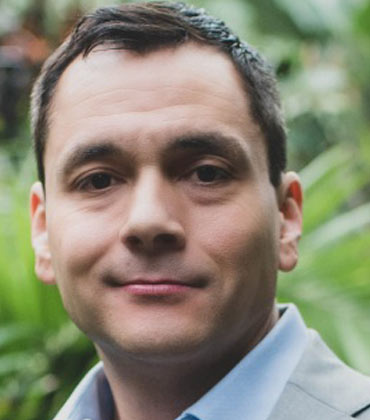The U.S. federal government classifies marijuana as a Schedule I narcotic under the Controlled Substances Act (CSA), restricting it from being prescribed or sold to the public. However, the government is taking a hands-off approach with respect to state laws legalizing the use of cannabis products, because hemp and its derivatives were made legal in the 2018 ‘Farm Bill’. Products derived from cannabis legal if the THC content is below 0.3%. This has created a complex legal landscape for businesses that want to navigate the regulatory ecosystem and become operational. Consilium Sciences, a leading provider of regulatory solutions for materials science, vaping, tobacco, and cannabis products, can enable clients to achieve this feat.
Consilium’s experienced and accomplished scientists, engineers, and clinicians have extensive knowledge across a wide range of federally regulated products to help businesses confidently handle complexities in a highly regulated environment. Consilium has the capability to assign subject-matter experts to every project. Teams are comprised of internal members along with selected individuals from its external network of scientists and clinicians to ensure the success of every project.
"The federal cannabis laws are still in flux, but we think it is inevitable that the FDA will regulate these products,” says Preston Campbell, Ph.D., Practice Lead, Pharmacology and Toxicology for Consilium. Due to the absence of clear regulatory timelines, most cannabis businesses do not realize the need to start preparing for regulations now. They are typically not equipped to deal with the federal requirements that will likely be mandated in the future, exposing these businesses to unnecessary risk.
“The federal cannabis regulations are expected to mirror the existing laws established for the Center for Tobacco Products (CTP) or the Center for Drug Evaluation and Research (CDER). Businesses in the cannabis field should start focusing on product quality and safety immediately so that they do not face any unfortunate and costly scenarios in the coming years,” says Campbell.
Consilium is helping regulated companies by bringing science into regulatory submissions and product development through a distributed consulting model. Consilium services include materials characterization, R&D strategy and regulatory submissions based on a practical perspective once the scientific and business goals of the clients are understood. Consilium also routinely engages with clients for defined, narrowscope projects, as well as long-term strategic support. This helps clients comply with existing regulations and stay at the forefront of changes in the regulatory landscape. Consilum can also help guide new product development for regulated products.
Consilium presents goals, explains requirements, embarks on study design, conducts research, develops strategy, and prepares a complete submission package for regulated products. Its support goes beyond submission with follow-up correspondence, responses to deficiency letters, post-market surveillance, and design and execution of annual reporting requirements. In addition to a strong internal staff, Consilium works with a broad range of contract research organizations (CROs), Subject Matter Experts (SMEs), scientific labs, and testing facilities. This allows Consilium to help clients design lean, cost-effective strategies to meet the client’s product requirements.
According to Dr. Campbell, “keeping track of all the regulations is the biggest challenge for developers and distributors of regulated products, including e-liquids, tobacco, nicotine replacement therapy, cannabis/CBD, and nutraceuticals/dietary supplements. A partner like Consilium offers great regulatory support, allowing clients to focus on their core business”.
Consilium’s experienced and accomplished scientists, engineers, and clinicians have extensive knowledge across a wide range of federally regulated products to help businesses confidently handle complexities in a highly regulated environment. Consilium has the capability to assign subject-matter experts to every project. Teams are comprised of internal members along with selected individuals from its external network of scientists and clinicians to ensure the success of every project.
"The federal cannabis laws are still in flux, but we think it is inevitable that the FDA will regulate these products,” says Preston Campbell, Ph.D., Practice Lead, Pharmacology and Toxicology for Consilium. Due to the absence of clear regulatory timelines, most cannabis businesses do not realize the need to start preparing for regulations now. They are typically not equipped to deal with the federal requirements that will likely be mandated in the future, exposing these businesses to unnecessary risk.
Businesses in the cannabis field should start focusing on product quality and safety immediately so that they do not face any unfortunate and costly scenarios in the coming years.
“The federal cannabis regulations are expected to mirror the existing laws established for the Center for Tobacco Products (CTP) or the Center for Drug Evaluation and Research (CDER). Businesses in the cannabis field should start focusing on product quality and safety immediately so that they do not face any unfortunate and costly scenarios in the coming years,” says Campbell.
Consilium is helping regulated companies by bringing science into regulatory submissions and product development through a distributed consulting model. Consilium services include materials characterization, R&D strategy and regulatory submissions based on a practical perspective once the scientific and business goals of the clients are understood. Consilium also routinely engages with clients for defined, narrowscope projects, as well as long-term strategic support. This helps clients comply with existing regulations and stay at the forefront of changes in the regulatory landscape. Consilum can also help guide new product development for regulated products.
Consilium presents goals, explains requirements, embarks on study design, conducts research, develops strategy, and prepares a complete submission package for regulated products. Its support goes beyond submission with follow-up correspondence, responses to deficiency letters, post-market surveillance, and design and execution of annual reporting requirements. In addition to a strong internal staff, Consilium works with a broad range of contract research organizations (CROs), Subject Matter Experts (SMEs), scientific labs, and testing facilities. This allows Consilium to help clients design lean, cost-effective strategies to meet the client’s product requirements.
According to Dr. Campbell, “keeping track of all the regulations is the biggest challenge for developers and distributors of regulated products, including e-liquids, tobacco, nicotine replacement therapy, cannabis/CBD, and nutraceuticals/dietary supplements. A partner like Consilium offers great regulatory support, allowing clients to focus on their core business”.
Company : Consilium Sciences
Headquarters :
Richmond, VA. ManagementPreston Campbell, Ph.D., Practice Lead, Pharmacology and Toxicology.
Stan Gilliland, Ph.D., Practice Lead, Materials Science, and Sarah Marking, MS, Practice Lead, Quality Systems.
Thank you for Subscribing to Cannabis Business Insights Weekly Brief




